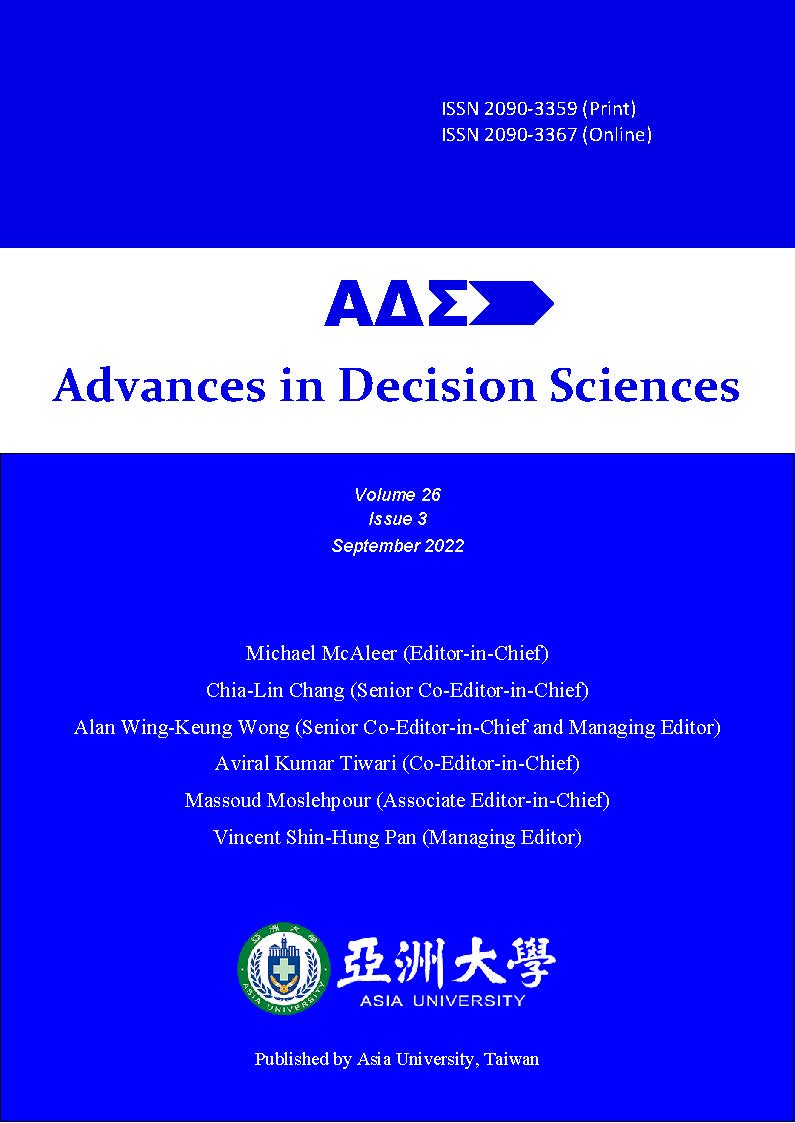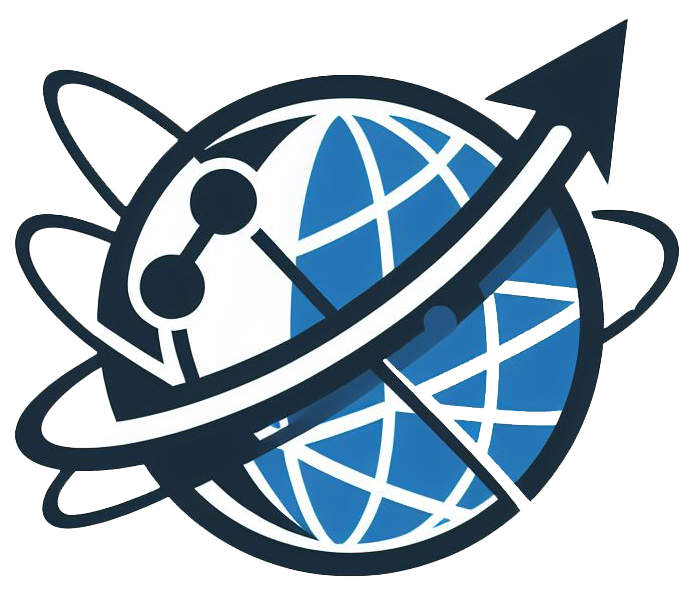Mode Shift Behavior of Commuters Toward Islamabad Metro Bus Service
DOI:
https://doi.org/10.47654/v26y2022i3p1-24Keywords:
Own transport, Public transport, Mode Shift Behavior Metro Bus Service, Travel cost, Logistic RegressionAbstract
Purpose: Transportation is considered the fundamental factor for mobility as every individual is highly dependent on transportation so that they can access work, goods, and other services. Increasing demand for motorization will bring up a congestion issue, especially in growing urban communities. Islamabad, the capital city of Pakistan, along with its neighboring city Rawalpindi has initiated a metro bus service to ease its traffic congestion problem and reduce atmospheric pollution. This study aimed to analyze the mode shift behavior of commuters from public transport, own transport, and taxi after the implementation of the metro bus service.
Design/methodology/approach: We employ logistic regression in our study because mode shift behavior is binary in nature.
Findings: The results of our study indicated that, in general, commuters are more willing to shift towards metro buses for job and education purposes, and female travelers are more willing to use the metro bus service as compared to males. Income shows no effect on mode shift behavior. We also find that the metro bus has the potential to reduce travel costs by PKR 2369 on average for own transport and PKR 800 for public transport users. Lastly, our findings include that the metro bus service has the potential to clean the environment by reducing carbon emissions, as it replaced approximately 700 public vehicles from the route, resulting in the reduction of around 8000 metric tons of carbon emissions from the region.
Originality/value: All our findings are original and new in the literature.
Implications: Our findings imply that many commuters are willing to shift towards metro buses for job and education purposes, especially for female travelers, regardless of their income levels. Our findings are useful not only for commuters, but also for metro companies for their plan for the development of their companies and for Governments to carry out more policies to encourage more commuters to shift towards metro service to reduce traffic jams and pollution and useful in their city planning.
References
Adebayo, T. S., Saint Akadiri, S., & Rjoub, H. (2022). On the relationship between economic policy uncertainty, geopolitical risk and stock market returns in South Korea: a quantile causality analysis. Annals of Financial Economics, 17(1), 22-34.
Alghalith, M., Swanson, N., Vasnev, A., & Wong, W. K. (2021). Editorial Statement In Honor Of Professor Michael Mcaleer. Annals of Financial Economics, 16(03), 2101002.
Alpkokin, P., & Ergun, M. (2012). Istanbul Metrobüs: first intercontinental bus rapid transit. Journal of Transport Geography, 24, 58-66.
Aye, G. C. (2021). Effects of fiscal and monetary policy uncertainty on economic activity in South Africa. Advances in Decision Sciences, 25(1), 167-187.
Bejrananda, C., Lee, Y., & Bejrananda, T. (2016). Spatial Patterns Of Economic Rents: Developing Suvarnabhumi International Airport, Thailand. Annals of Financial Economics, 11(03), 1650014.
Cakan, E., Demirer, R., Gupta, R., & Uwilingiye, J. (2019). Economic policy uncertainty and herding behavior: evidence from the South African housing market. Advances in Decision Sciences, 23(1), 88-113.
Chakrabarti, S. (2017). How can public transit get people out of their cars? An analysis of transit mode choice for commute trips in Los Angeles. Transport Policy, 54, 80-89.
Chang, C. L., McAleer, M., & Ramos, V. (2020). The future of tourism in the COVID-19 era. Advances in Decision Sciences, 24(3), 218-230.
Copley, G., Thomas, M., Maunsell, F., & Georgeson, N. (2002). Croydon Tramlink impact study. Publication of: Association for European Transport.
De Guzman, M. P., & Diaz, C. E. (2005). Analysis of mode choice behavior of students in exclusive schools in metro Manila: The case of Ateneo de Manila University & Miriam College. In Proceedings of the Eastern Asia Society for Transportation Studies, 5, 1116-1131.
Domencich, T. A., & McFadden, D. (1975). Urban travel demand-a behavioral analysis (No. Monograph).
Enam, A., & Choudhury, C. F. (2011). Methodological issues in developing mode choice models for Dhaka, Bangladesh. Transportation research record, 2239(1), 84-92.
Golias, J. C. (2002). Analysis of traffic corridor impacts from the introduction of the new Athens Metro system. Journal of Transport Geography, 10(2), 91-97.
Ho, C. Y., & Puspitasari, I. (2021). Intelligent Transportation Systems in Smart Cities Application to Taichung City Bus, Taiwan. Advances in Decision Sciences, 25(1), 143-166.
Knowles, R. D. (1996). Transport impacts of Greater Manchester's Metrolink light rail system. Journal of Transport Geography, 4(1), 1-14.
Lien, Y. N., Wang, J. D., Pan, S. H., Ho, C. Y., & Liao, S. C. (2020). Analysis of Bus Commuting Time of High School Students in Taichung City, Taiwan. Advances in Decision Sciences, 24(2), 167-189.
Lv, Z., Chu, A. M., Wong, W. K., & Chiang, T. C. (2021). The maximum-return-and-minimum-volatility effect: evidence from choosing risky and riskless assets to form a portfolio. Risk Management, 23(1), 97-122.
Maunganidze, L., & Del Mistro, R. F. (2012). The role of bus rapid transit in improving public transport levels of service, particulary for the urban poor users of public transport: a case of Cape Town, South Africa. SATC 2012.
Mendieta-Aragon, A., & Garín-Muñoz, T. (2020). Foreign Tourism in Andalusia: A Dynamic Panel Data Analysis. Advances in Decision Sciences, 24(3), 1-32.
Monzon, A., & GONZALES, J. D. (2000). TRAVEL DEMAND IMPACTS OF A NEW PRIVATELY OPERATED SUBURBAN RAIL IN THE MADRID N-III CORRIDOR. In THE PLANNING AND MANAGEMENT OF PUBLIC TRANSPORT SYSTEMS: PROCEEDINGS OF SEMINAR E HELD AT THE EUROPEAN TRANSPORT CONFERENCE.
Moslehpour, M., Pan, S. H., Tiwari, A. K., & Wong, W. K. (2021). Editorial in Honour of Professor Michael McAleer. Advances in Decision Sciences, 25(4), 1-14.
Ongan, S., & Gocer, I. (2017). Testing the causalities between economic policy uncertainty and the US stock indices: Applications of linear and nonlinear approaches. Annals of Financial Economics, 12(04), 1750016.
Ryu, H. K., & Slottje, D. J. (2020). Does Political Dominance Impact Economic Inequality?. Advances in Decision Sciences, 24(1), 1-28.
Sarkar, P. P., & Mallikarjuna, C. (2018). Effect of perception and attitudinal variables on mode choice behavior: A case study of Indian city, Agartala. Travel Behaviour and Society, 12, 108-114.
Satiennam, T., Jaensirisak, S., Satiennam, W., & Detdamrong, S. (2016). Potential for modal shift by passenger car and motorcycle users towards Bus Rapid Transit (BRT) in an Asian developing city. IATSS research, 39(2), 121-129.
SOEHODHO, S., & Nainggolan, P. J. (2005). Public transport user attitude based on choice model parameter characteristics (case study: Jakarta busway system). Journal of the Eastern Asia Society for Transportation Studies, 6, 480-491.
Un-Habitat. (2012). State of the World's Cities 2008/9: Harmonious Cities. Routledge.
Vedagiri, P., & Arasan, V. T. (2009). Estimating modal shift of car travelers to bus on introduction of bus priority system. Journal of transportation systems engineering and information technology, 9(6), 120-129.
Wang, Y., Li, L., Wang, Z., Lv, T., & Wang, L. (2013). Mode shift behavior impacts from the introduction of metro service: Case study of Xi’an, China. Journal of urban planning and development, 139(3), 216-225.
Yadav, S., Rokade, S., & Jaiswal, A. (2017). IDENTIFICATION OF ATTRIBUTES AFFECTING MODE CHOICE MODAL FOR BUS RAPID TRANSIT SYSTEM.
Yang, J., Wu, W., Mao, X., & Cai, Z. (2019). Quantile analysis of investment in private participation in infrastructure projects. Annals of Financial Economics, 14(01), 1950005.
Yazici, M. A., Levinson, H. S., Ilicali, M., Camkesen, N., & Kamga, C. (2013). A bus rapid transit line case study: Istanbul’s metrobüs system. Journal of Public Transportation, 16(1),153–77.

Published
Issue
Section
License
Copyright (c) 2022 Advances in Decision Sciences

This work is licensed under a Creative Commons Attribution-NonCommercial 4.0 International License.







 Scientific and Business World
Scientific and Business World